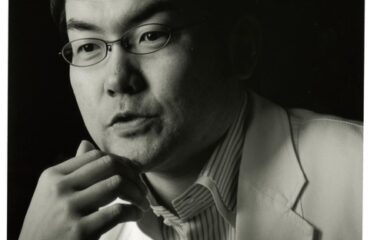THREE POEMS by Dilruba Ahmed

THE CHILDREN
How each one is taken
with care from car
to school doorstep, each one
hand-in-hand with an adult.
How the mothers
and fathers kiss
their foreheads, first
pushing aside their bangs
or smoothing
a stray wisp. One
parent straightens
her daughter’s velvet
headband; another wipes
dried oatmeal
from his son’s pink lips.
How carefully
each child is guided
around the bumpers
of cars. How some turn
to wave goodbye
one last time while others,
drawn to friends
by an invisible cord,
move together, first left
then right, with
the synchronicity
of fish. How even the child
with tears in his lashes
who cowers near a teacher
knows that in a matter of hours,
a loved one will return
to him, to return him
to the facts of home:
butterfly net
for trapping monarchs.
Foil blanket
from a space museum.
Four-leaf clover
charms on a chain.
ANOTHER FORM OF SKIN
Hiding us all the times we prefer to stay hidden.
Piled by the door
rumpled, forgotten.
Brought forward
in offering: burnt mittens,
torn shoes, bloodied handkerchief.
I have hung on a clothesline
shirts so white that I
felt surrounded by clouds
or by the impossible words
of God. Sometimes the wind
blows through me
as though I do not exist,
as though all form
could go formless without notice.
Think, for example, of the way
no one stands at the door
offering a cabled sweater, saying
here you might need this
it’s cold out today no one
except me, for example.
And though
there is no one, now,
inside the sweater
here I am securing each button
all the way to the top,
delicately lifting
imagined lint from a sleeve.
IN THE HOURS JUST AFTER, IN THE HOURS BETWEEN
Caught between one world
and the next, between the buzzing actual
of air breathed, streets crossed,
food chosen, prepared,
consumed. Of sleep slept
but broken
again and again into waking—
caught between the easy language
of regret and viscous words of loss,
words that, like timid creatures,
have tunneled deep into caves
for the long winter, and may never
emerge again, such is the lure
of the darkness
and the mind & the mouth hollowed out.
Caught between laughing
about what he would’ve said
about attending to his own death
Easy now, easy, take it easy now now now
and absorbing the infinite chill
of seeing he could
no longer say it—
we speak of him, still, in the present
tense. Caught between calling, first,
the one who’d prepare his body
for the grave or the one who’d
tend to his soul as he’d wished.
Morgue or mosque, we ask
him, mosque or morgue we ask
ourselves. Again and again,
the sound of no voice,
just the specter of one nurse
and then another
shuffling down the hall in scrubs,
doctors in angel-white gowns
and shoes, their hairnets
like deflated haloes
clinging to their heads.

